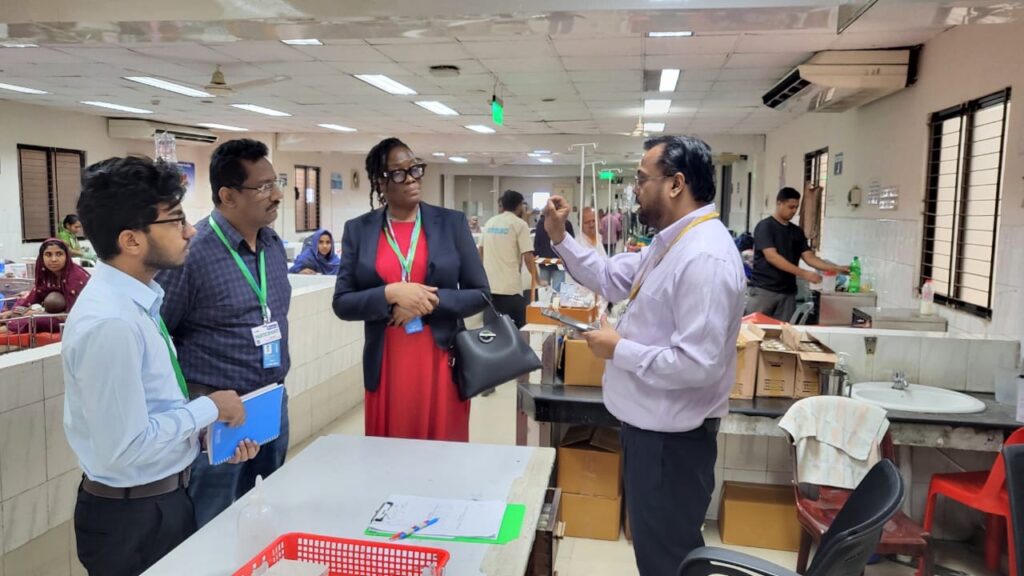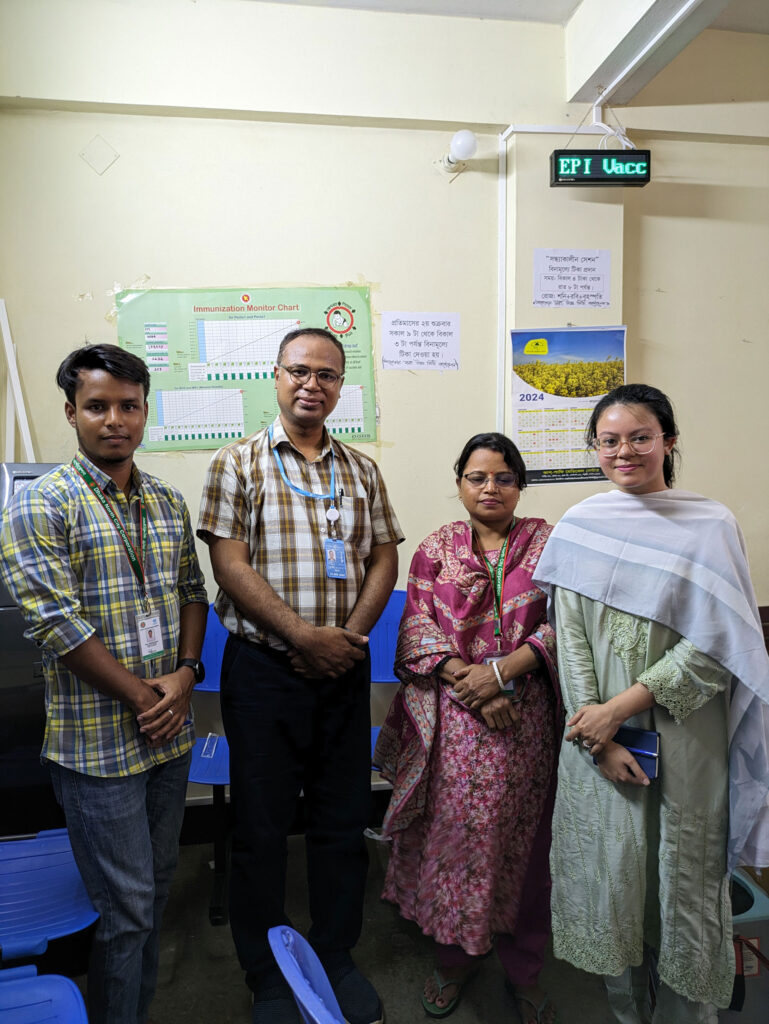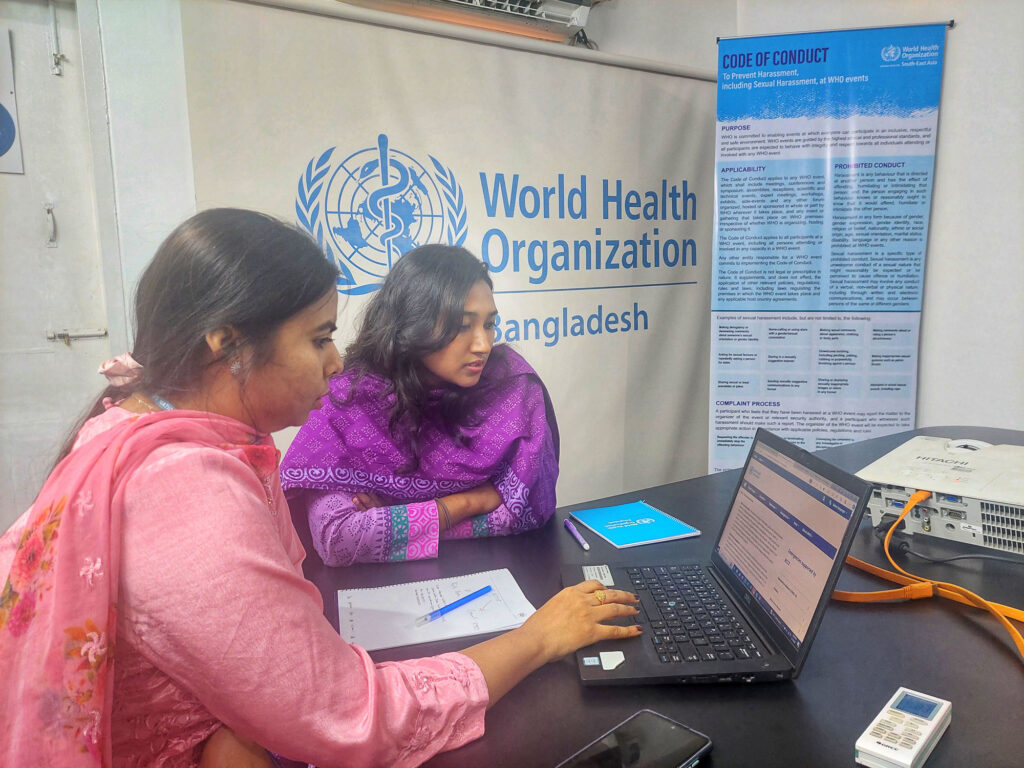


Bangladesh Medical Student Society is pioneering the inaugural observership program in collaboration with the WHO Bangladesh. This innovative initiative offers medical students from diverse colleges nationwide an invaluable opportunity to immerse themselves in the workings of WHO within the country. By partnering with BMSS, the program aims not only to provide firsthand experience but also to cultivate a profound interest in public health among the participating students. BMSS comprises medical undergraduates from more than 37 medical schools across the country, with a mission to empower these students to become well-rounded future leaders in healthcare.
The key goals of this observership program are to provide medical students from various backgrounds across the nation with a distinctive chance to observe and understand the workings of the World Health Organization (WHO). By participating in this program, students acquire invaluable insights into global health policies, initiatives, and the complexities encountered in public health. Furthermore, the initiative keen to mold meaningful relationships between medical students and WHO officials, paving the way for potential future collaborations in vital areas such as health education, research, and community involvement.
During the 10-day observership program, fifth and final-year medical students from BMSS are deployed across three pivotal units within WHO Bangladesh. Three medical students partook in this observational experience, and they were assigned to the following units: Immunization and Vaccines Development (IVD), Health Surveillance and Emergency (HSE), and WHO Sub-Office (WSO). Throughout this duration, the selected students are granted the opportunity to actively participate in the daily operations and initiatives of WHO Bangladesh. Three observants started the observership program with three different units on 28 April and completed it on 9th May 2024.
Dr. Nabila Jashim Nuha, in-terne doctor of Shaheed Tajuddin Ahmad Medical College and a BMSS member, commenced her participation in the observership program with the WHO Bangladesh Immunization and Vaccine Development (IVD) Unit. Her focus centered on disease surveillance, particularly regarding conditions such as acute flaccid paralysis, measles, neonatal tetanus, acute encephalitis syndrome, and congenital rubella syndrome. Throughout this phase, Dr. Nuha shadowed four Surveillance and Immunization Medical Officers (SIMOs), closely observing their activities in active surveillance and monitoring of Expanded Program on Immunization (EPI) sessions. During the initial five days at Dhaka North City Corporation, Dr. Nuha conducted case investigations at Dhaka Shishu Hospital and the Infectious Disease Hospital, Mohakhali. Additionally, she observed the maintenance of the cold chain system at five EPI vaccination centers.
During the subsequent five days at Dhaka South City Corporation, Dr. Nuha visited Mugda Medical College and Hospital, Dhaka Medical College and Hospital, Bangabandhu Sheikh Mujib Medical University (BSMMU), and Anwar Khan Modern Medical College and Hospital for further case investigations. During this period, she also observed orientation programs conducted by SIMOs for healthcare professionals and witnessed the declaration of a measles outbreak in Khilgaon, along with subsequent training sessions for field workers. “My observership at the Immunization and Vaccine Development unit was invaluable. Shadowing dedicated medical officers and observing disease surveillance and EPI sessions deepened my public health understanding. I am grateful to WHO Bangladesh for such opportunity,” Said Dr Nuha. Throughout her 10 days observership program, Dr. Nuha received guidance from several individuals, including Dr. Jahangir Alam, Divisional Coordinator in Dhaka, along with Dr. Masud Rana, Dr. Mukit Ahmed, Dr. Jibashish Chakma, and Dr. Rezaul Hossain. These experienced professionals provided support and mentorship to Dr. Nuha, helping to enhance her learning experience, and understanding of the operations within WHO Bangladesh.
Mr. Tamzid Hasan, a final-year medical student from Dhaka Medical College and a member of BMSS, was assigned to the WHO Bangladesh Health Security and Emergency (HSE) Unit. The first day at WHO began with an introduction to the officials of the WHE and a comprehensive overview of the unit’s operations. This encompassed a broad spectrum of topics including unit structure, working policies, incident management systems (IMS), administration, work plans, financial modalities, human resources and staff, international health regulations (IHR), disease surveillance, data management, emergency and humanitarian actions, environmental health, infectious hazard management, influenza, and antimicrobial resistance (AMR) activities, and more. This thorough program facilitated interactions with staff from various sub-units, and it also provided opportunities for engagement with government agencies and collaborating health partners, thereby offering valuable insights into how WHO executes its mandate within the country. “My observership at the WHE Unit of WHO Bangladesh unveiled the vital intricacies of epidemiology, disease surveillance, and outbreak and crisis management. This was such an eye-opening experience that gave me insights into workplace ethics and professional practices, which I wish to harbor throughout my lifetime. And it’s all thanks to this wonderful team at WHO,” said Dr Tamzid. In this 10-day observership, Mr Tamzid received direct guidance from Dr Muhammad Zahidur Rahim and Dr Irene Isibor from the WHE unit.
Dr. Maksuda Sultana Moon, a member of BMSS, commenced her observership program by gaining an overview of WSO Operations. She actively participated in sessions with various teams, including Health Operations, Risk Communication and Community Engagement (RCCE), and the Epidemiology and Surveillance Unit. These sessions provided a detailed understanding of the processes involved, from planning to implementation, highlighting the coordination necessary for effective health management during crises. In the second week, Dr. Moon visited the Rohingya Camps in Ukhiya and Teknaf, where she gained firsthand experience.
This experience allowed her the practical application strategies and observe the dedication of WSO teams in addressing health issues directly on the ground. WSO leads the Health Sector response for the largest refugee populations (est 1M) in camps in the world. “The observership at the WHO suboffice (WSO) in Cox’s Bazar provided me with insight into how WHO addresses and responds to emergency crises like the FDMN influx in 2017. Visiting the Rohingya camps in Ukhiya and Teknaf and observing their healthcare facilities demonstrated how WHO, in collaboration with other UN agencies, manages such crises. This experience will be a lifelong lesson for me.” said Dr Moon. During her observership program, Dr. Moon received guidance from Dr. Jorge Martinez, Head of WSO, as well as the team leads of the Cox’s Bazar sub-office. This mentorship and support provided Dr. Moon with valuable insights into emergency response strategies and the indispensable role played by WHO in humanitarian efforts. Such guidance enriched her understanding of the complexities involved in addressing health challenges during crises and highlighted the crucial contributions made by WHO teams in such contexts.
The program concluded with a comprehensive debriefing session, where participants reflected on their experiences, newly acquired knowledge, lessons learned, identified best practices, and areas of interest sparked by informed perspectives. It is anticipated that the positive outcomes of this exercise will lay a foundation for the organization of similar programs in the future, both within the unit and across the organization. These initiatives aim to strengthen partnerships and advocate for WHO’s work at national, regional, and global levels, thus contributing to the advancement of public health initiatives worldwide.

